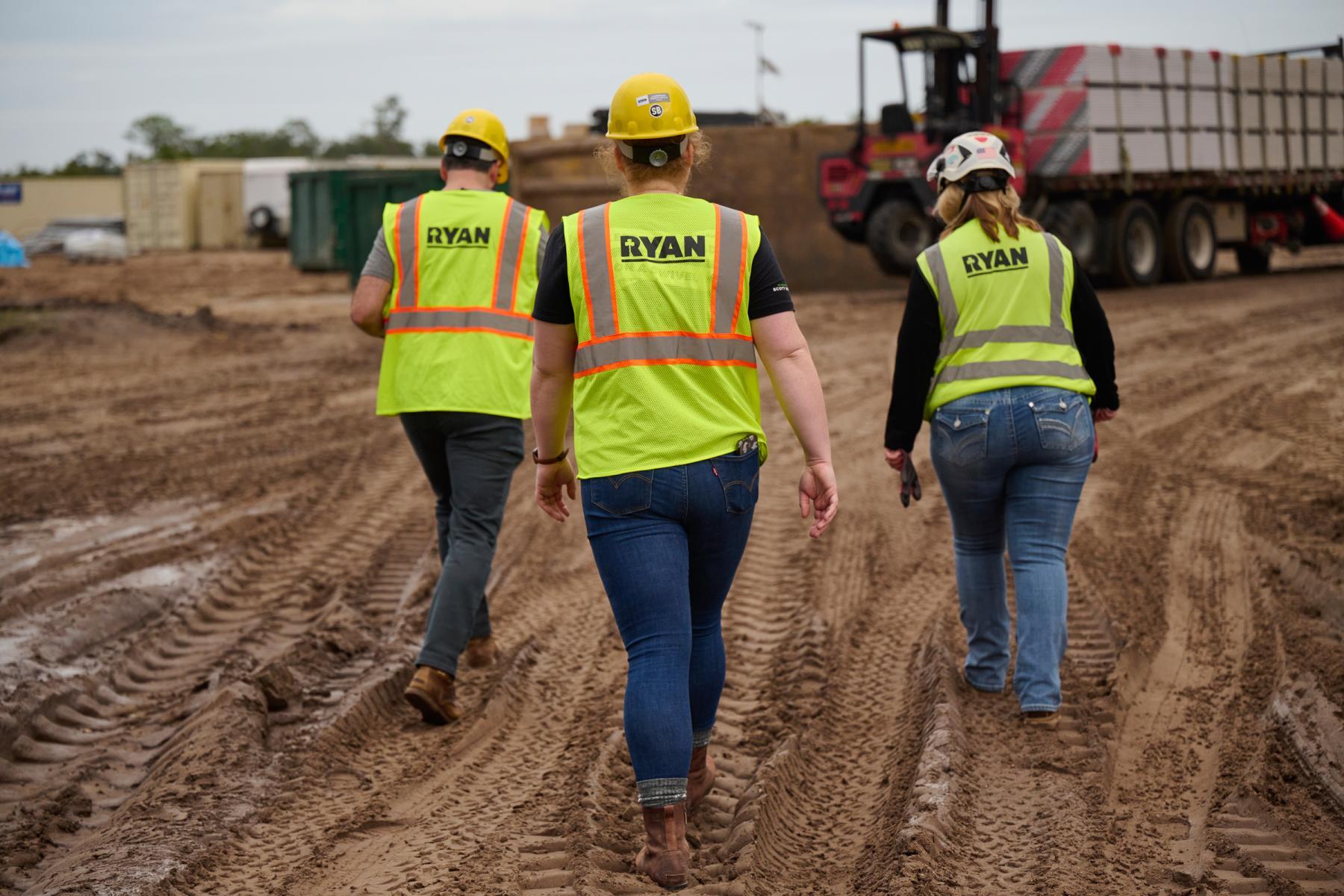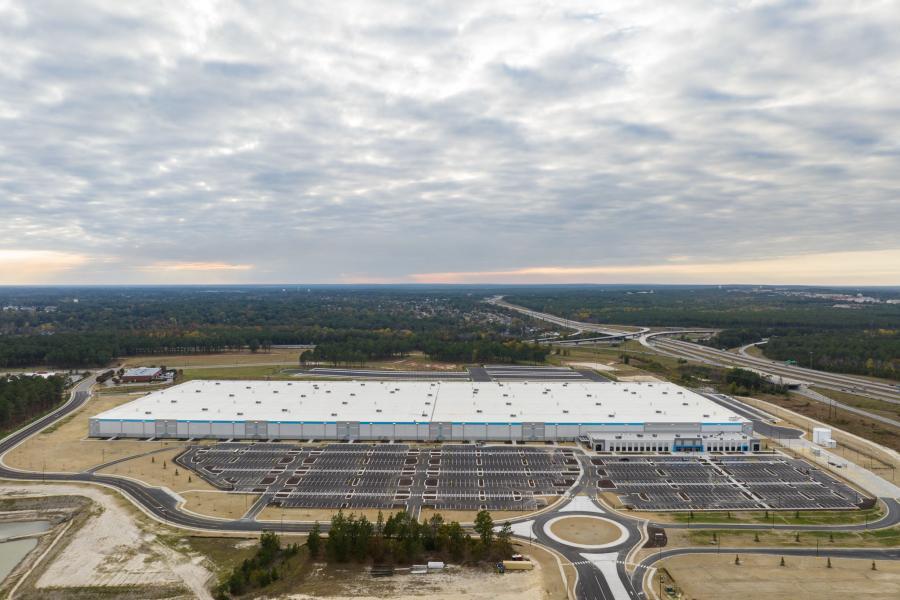Female Powerhouse Team Lead Amazon Construction Project

Let’s start with some stats.
- One new Amazon facility
- More than a million square feet in size
- A team of more than 25 women
- Four companies
- AND three babies born during the project
That’s what was behind the creation of a new Amazon facility in Fayetteville, North Carolina.
Developed and constructed by Ryan Companies, this Amazon RDU4 Fayetteville, NC Traditional Non-Sort Center is 1.3M square feet, took one year to complete and is in Fayetteville’s Military Business Park, across the interstate from Fort Bragg Military Base.
Ryan and Amazon have had a historically strong partnership, successfully collaborating to construct numerous facilities across the country. But this project was unprecedented.
How?
One word: Women.
In a typically male-dominated industry, this project was especially unique because it was primarily run and managed by a powerhouse of more than 25 women. From the Ryan construction and development teams, Amazon’s construction and transaction managers, and the owner and escrow agent, female team members worked together to get this project off the ground on time and on budget.
As we celebrate Women in Construction week, we’re taking a deeper look into how this female powerhouse team came together to bring this Amazon project to life while blazing new paths—and showing signs of a new future—in the Industrial industry.
The creation of this women powerhouse team happened organically. There was no deliberate intent to create a specifically female-dominated team. It was only until after the project wrapped that the team took a step back and realized how atypical the team makeup was for a project.
And yet, the stars aligned, bringing this dynamic team together to see the project through from start to finish. Female team members brought their expertise to the table, including women from Ryan as the developer and general contractor; Amazon’s transaction manager and construction managers, as well as the owner Blue Owl (formerly Oak Street) and the escrow agent, First American Title Insurance Company.
Still, it was an atypical team makeup. To provide some context: Cloteen Jasmin, Senior Vice President, Market Leader at Ryan, has been working on large Industrial real estate projects for over 20 years. She said she has never worked with this many women on a single Industrial project of any size. Additionally, five women on the team were African American, which is also uncommon, as the Industrial sector has traditionally attracted white males.
…and a potential sign that the future is female (or at least, more female) in Industrial. In the past, women were not commonly recruited to the Industrial sector. They were usually guided to sectors such as Office, Multifamily and Retail.
That’s another reason why this Amazon project is unique—not only because of the number of women, but the number of women working together on an Industrial project.
But in recent years, the industry is seeing more women build a career in Industrial, including an increase in women leaders and male allies who support women in the Industrial sector. Yes, commercial real estate remains especially male dominant, but projects like this highlight that the needle is moving towards a more balanced industry workforce.
While the team makeup was atypical, the process and results yielded similar results (in other words… a success). The female leaders on this project said they were successful because they shared the same belief in client excellence. When asked if they faced unique challenges on this project because of being female, team members adamantly said no. Members on the team worked 100-plus hours a week— some nights with little sleep to close on the land in December over Christmas. This commitment was evident throughout the project and in each team member.
Diversity on a project is not only a priority to support DEI efforts, but it also helps propel the industry forward through strategy and problem-solving. This industry is a complex business that requires flexibility, creative solutions and adaptability. Unique experiences help serve clients better, and by embracing different perspectives offered by diverse teams—including women—the industry can continue to grow and cater to diverse needs.
